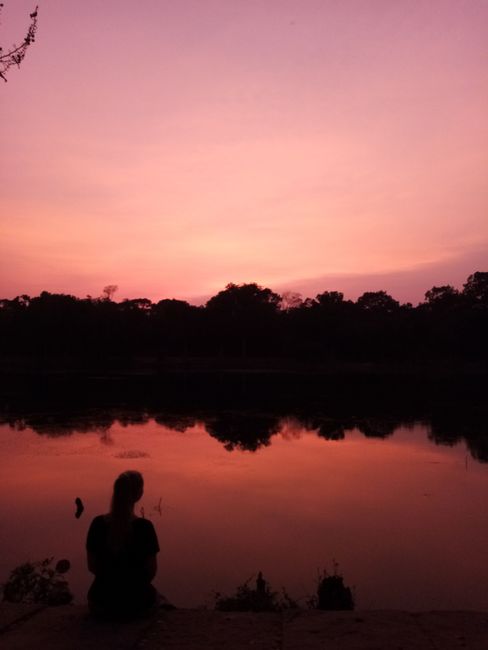
Worldtraveller
vakantio.de/worldtraveller
Second day in Siem Reap, Cambodia
A bɔra kɛnɛ kan: 25.03.2020
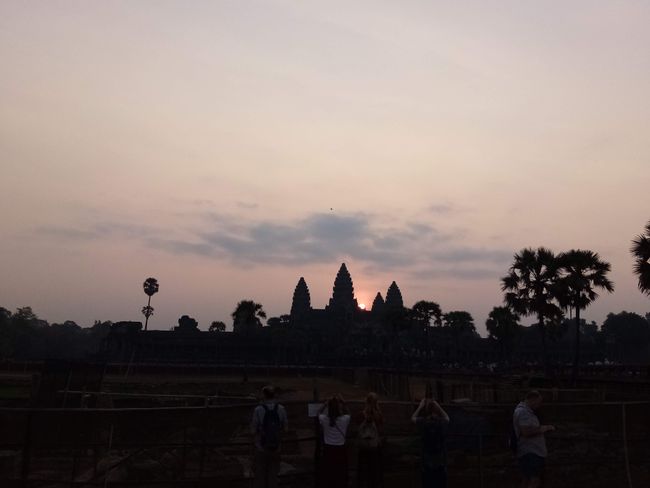
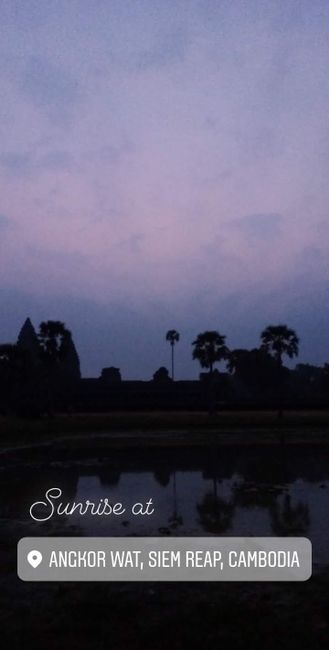
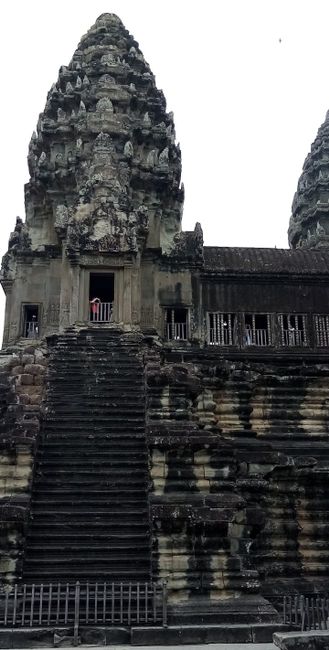
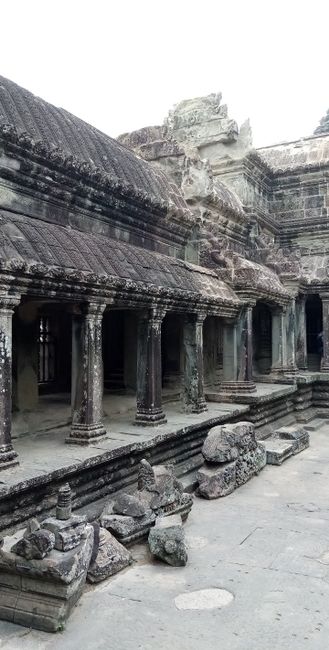
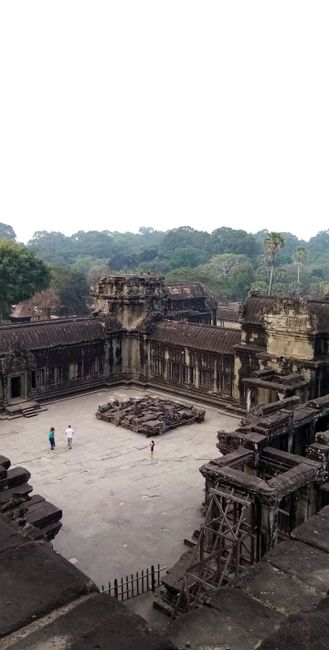
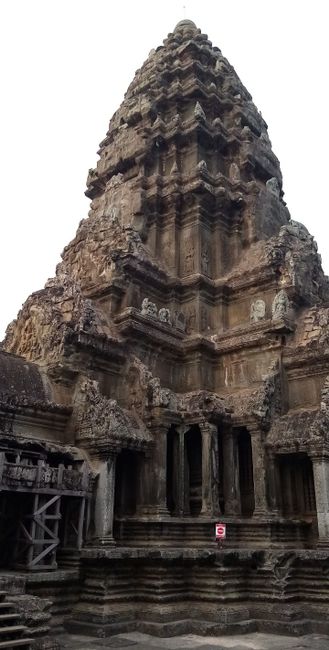
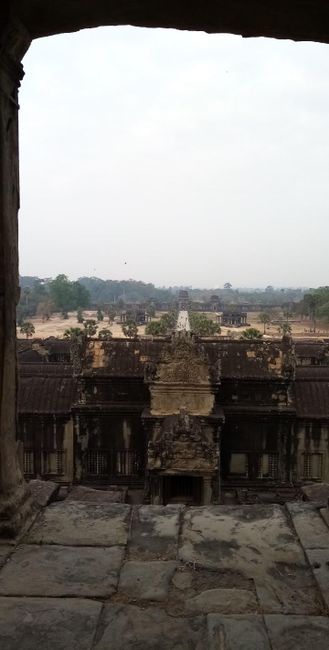
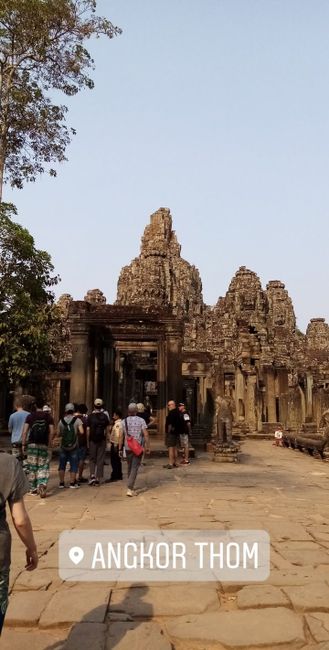
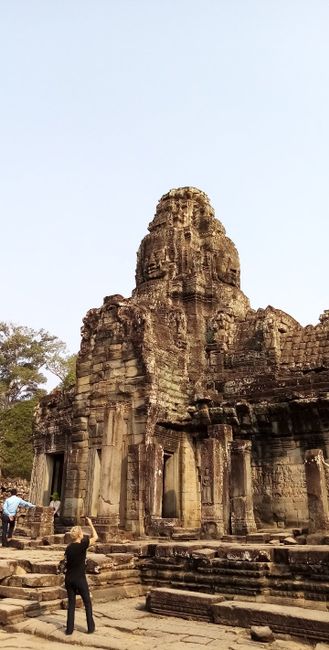
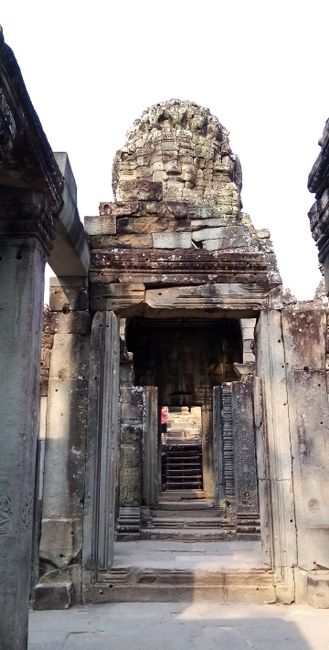
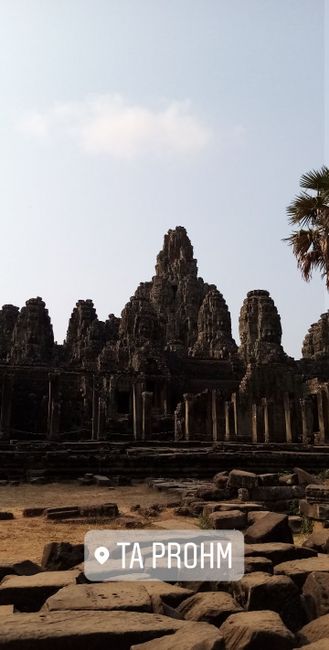
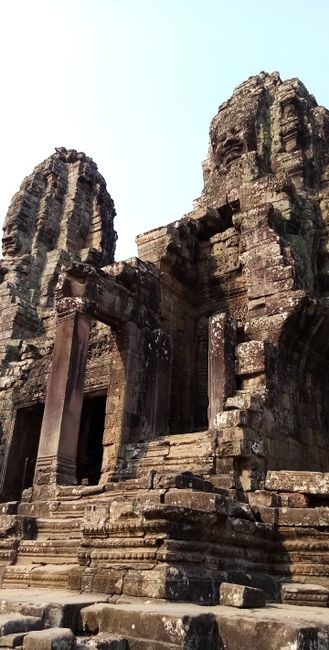
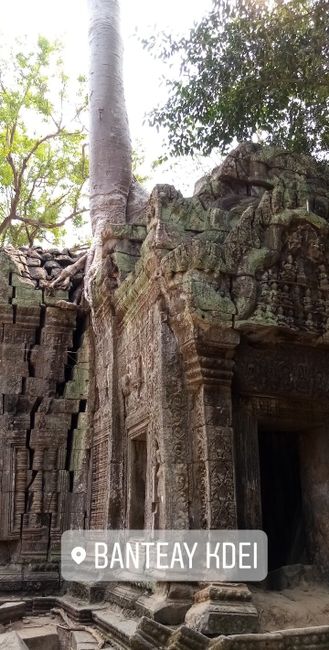
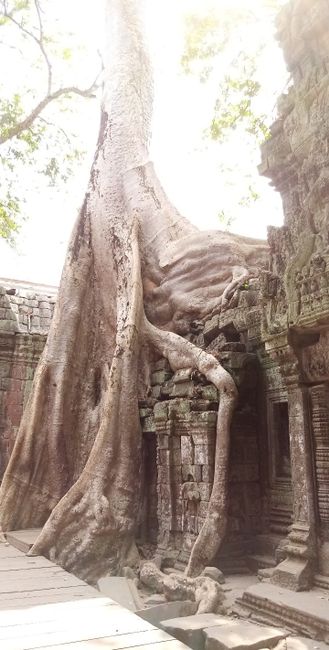
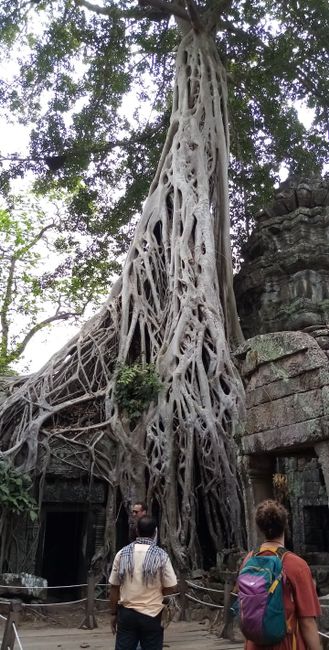
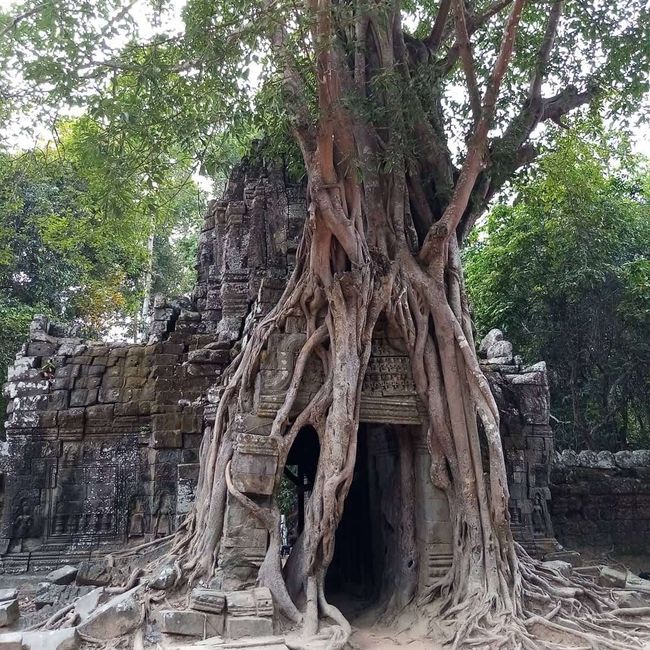
On Tuesday, 03.05.2020, the alarm rang at 03.30 am, as we were picked up half an hour later. This time, we went to the Angkor Wat temple complex in a minivan with a tour guide and watched the sunrise there. There were a total of 14 people in our group that day, and most of them still had to buy an entrance ticket. We had already done this the day before, which is why we left so early.
When we arrived at the temple, of course, we were not the only tourists, so we quickly found a spot for the perfect sunrise. Unlike the sunset the previous day, we were unfortunately a bit disappointed. The sky did not show many colors and it was quite foggy. Nevertheless, we had a beautiful sunrise, but it did not compare to the pictures we had seen beforehand.
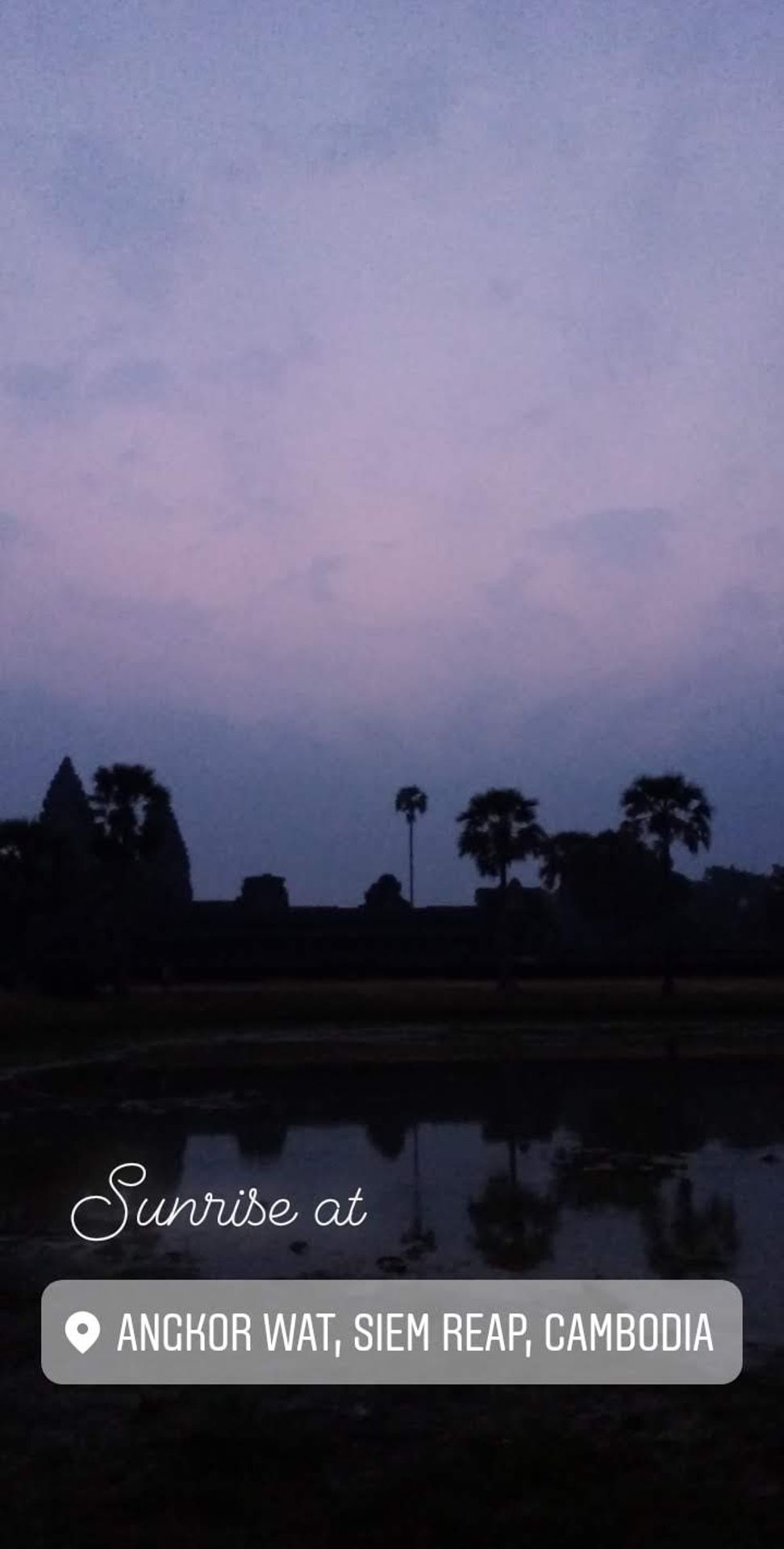
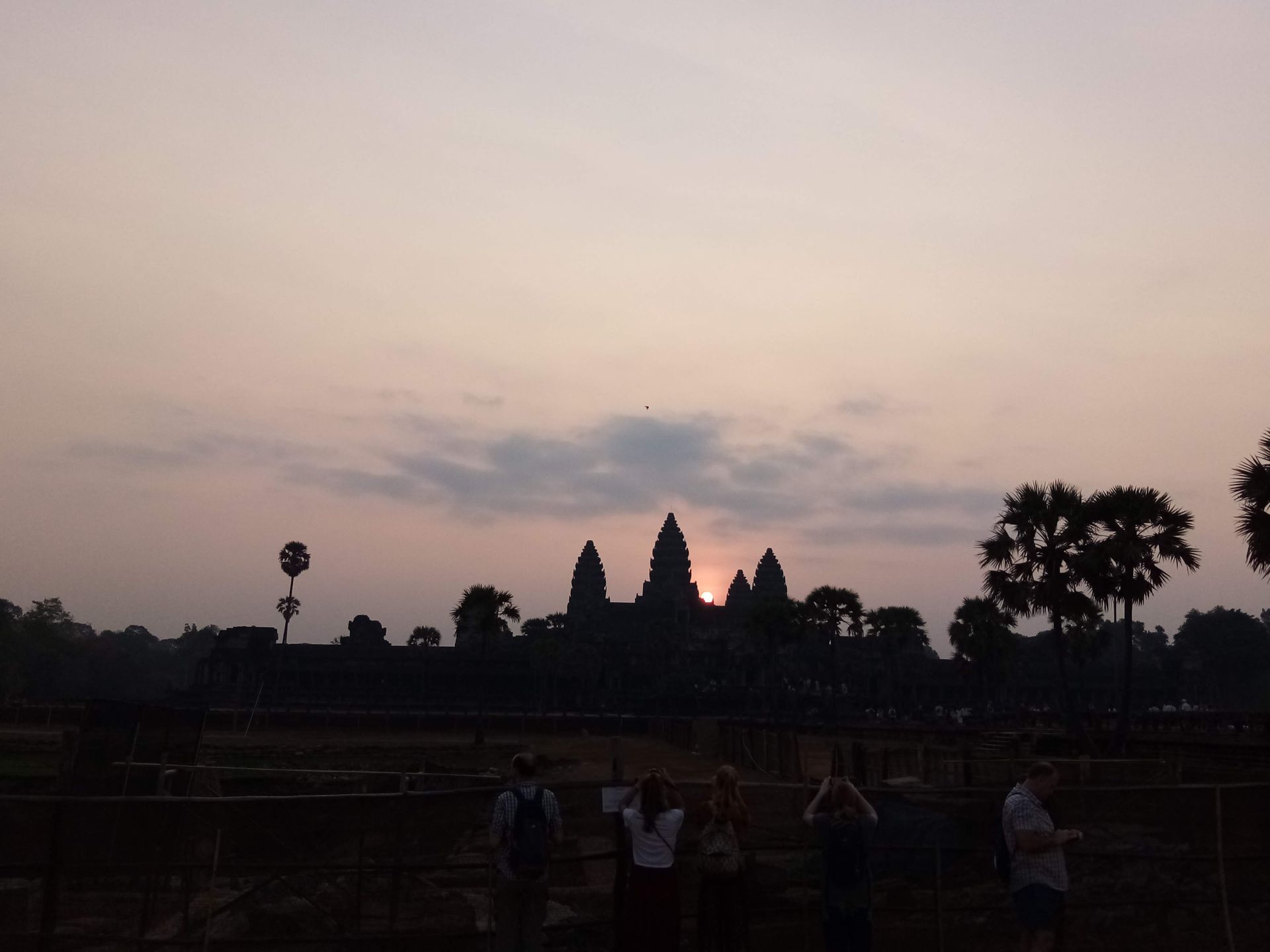
Afterwards, we explored the actual temple in its entirety. It is a national symbol and can be seen on the flag of Cambodia, as well as on the banknotes, etc. 'Angkor Wat' translates to 'City Temple' and is considered a royal city by the Cambodians, who are also called Khmer. The construction of the 200-hectare complex began in the 10th century. However, due to several successors to the throne and internal political unrest, the construction was halted and left to nature. In the 18th century, the complex was rediscovered under French occupation and the construction resumed or the first restorations began. Mostly sandstone from highlands over 50 km away was used for the construction, which is why constant care and continuous restoration are necessary for its preservation. Unlike in the past, the temple complex is now missing buildings, as they were made of wood. Many statues were destroyed or stolen due to numerous wars.
Angkor Wat is known for its 5 towers, one large in the center and 4 small ones arranged in a quadrangle around it. The entire area is surrounded by a water moat over 1.50 meters wide, which kept the jungle at bay and significantly supported settlements during rice harvesting. The temples are decorated with stone dancers. Each figure has its own characteristics, so they do not resemble each other and give each temple its uniqueness.
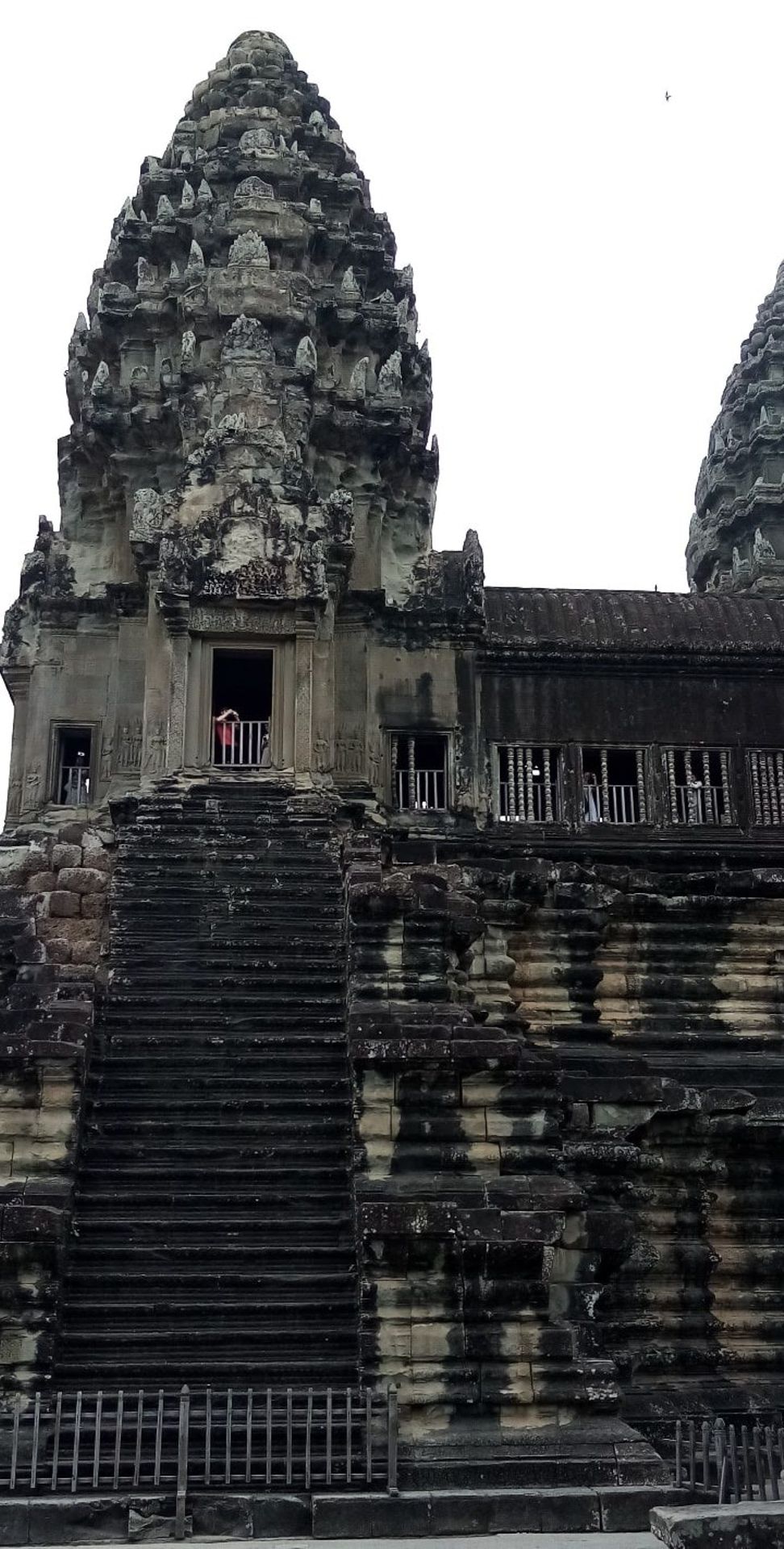

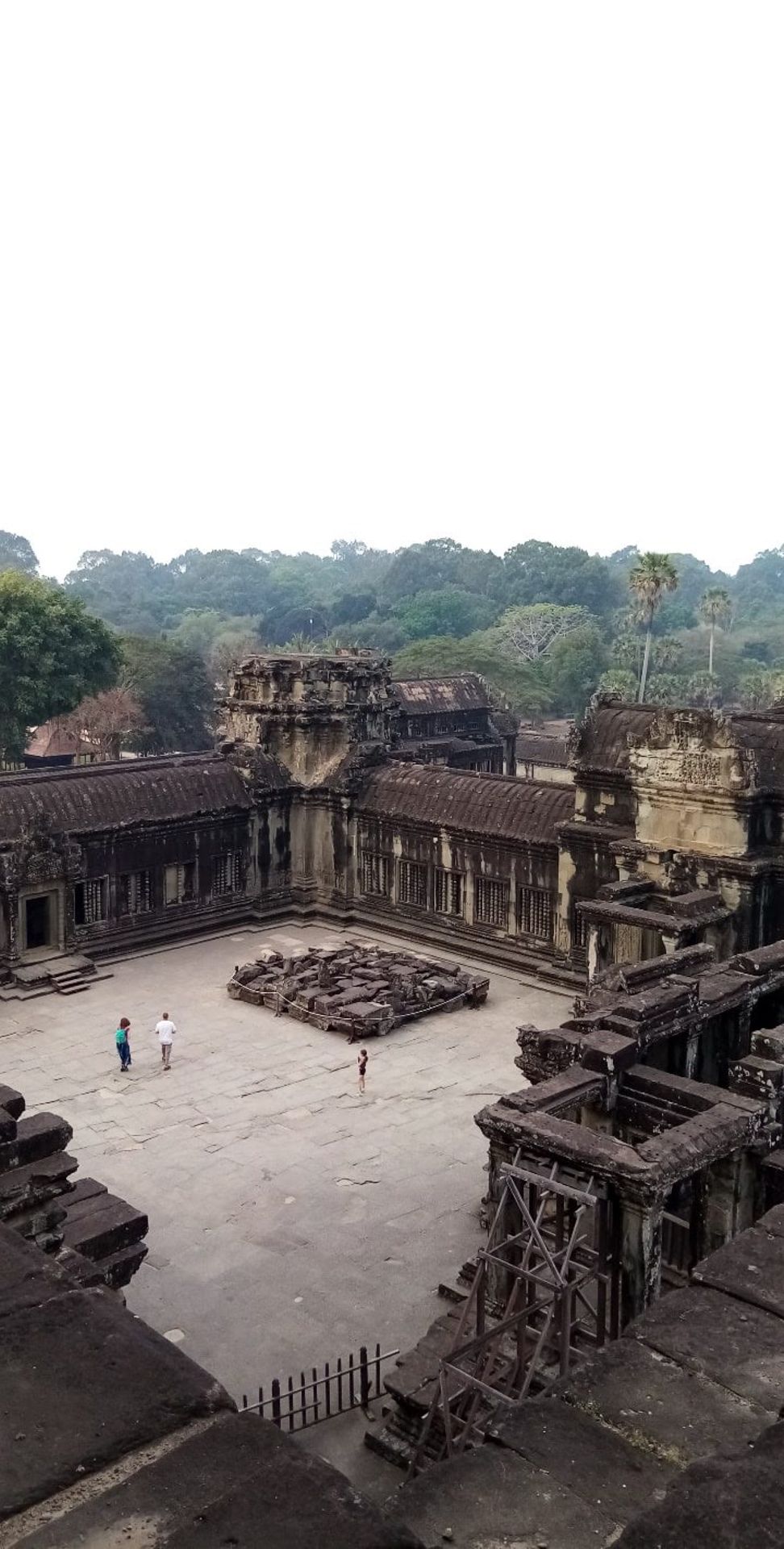

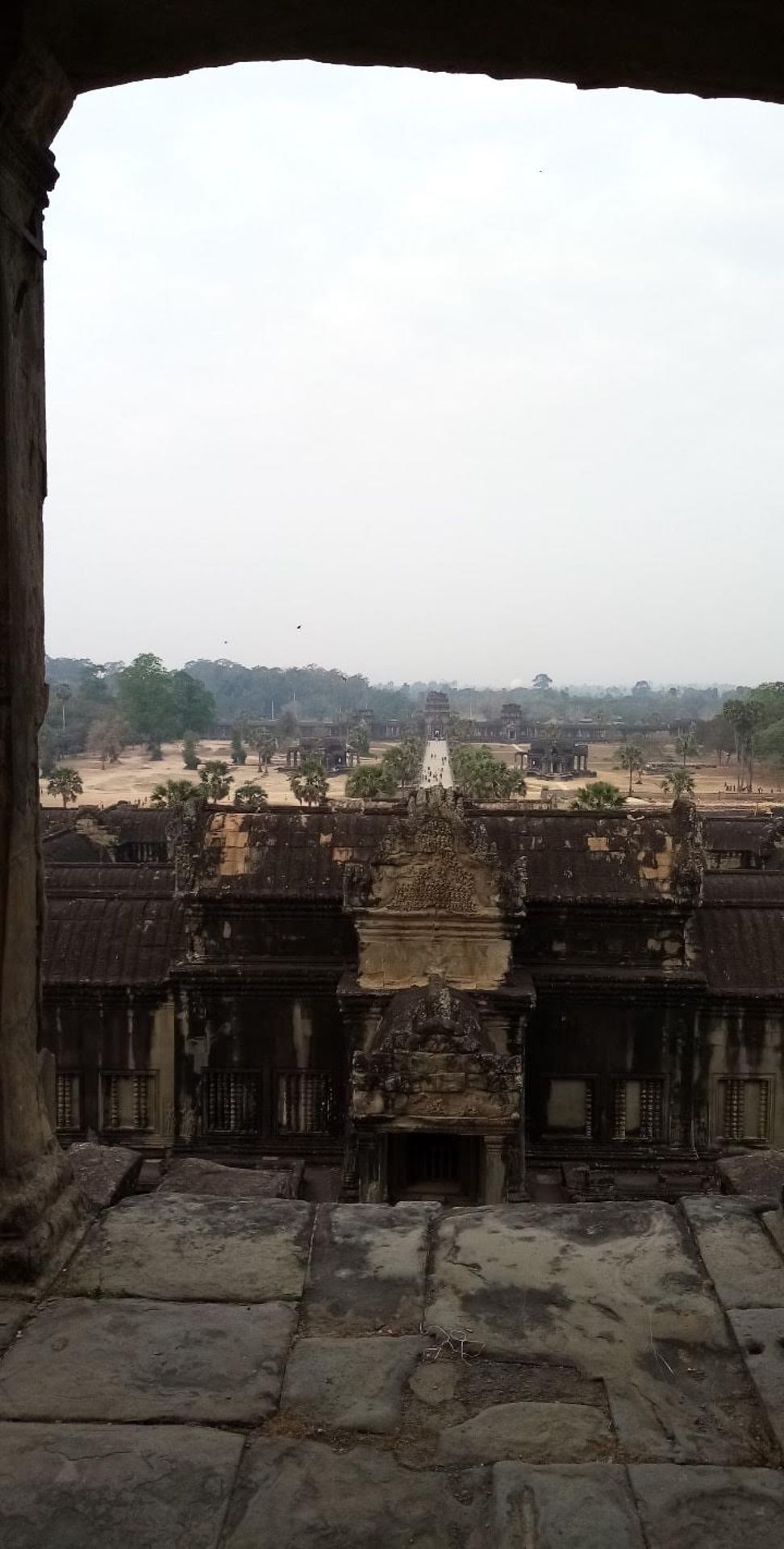
Next, we visited the nearby temple of Angkor Thom, which translates to 'Great City' and is the second largest. On each side of the complex, there is a smiling Buddha who turns away from the temple. This is why this temple is also called the 'smiling Buddha'. Here too, there is a water moat, which has a width of 100 meters. The size of the complex suggests that this is the second most important temple in the area.

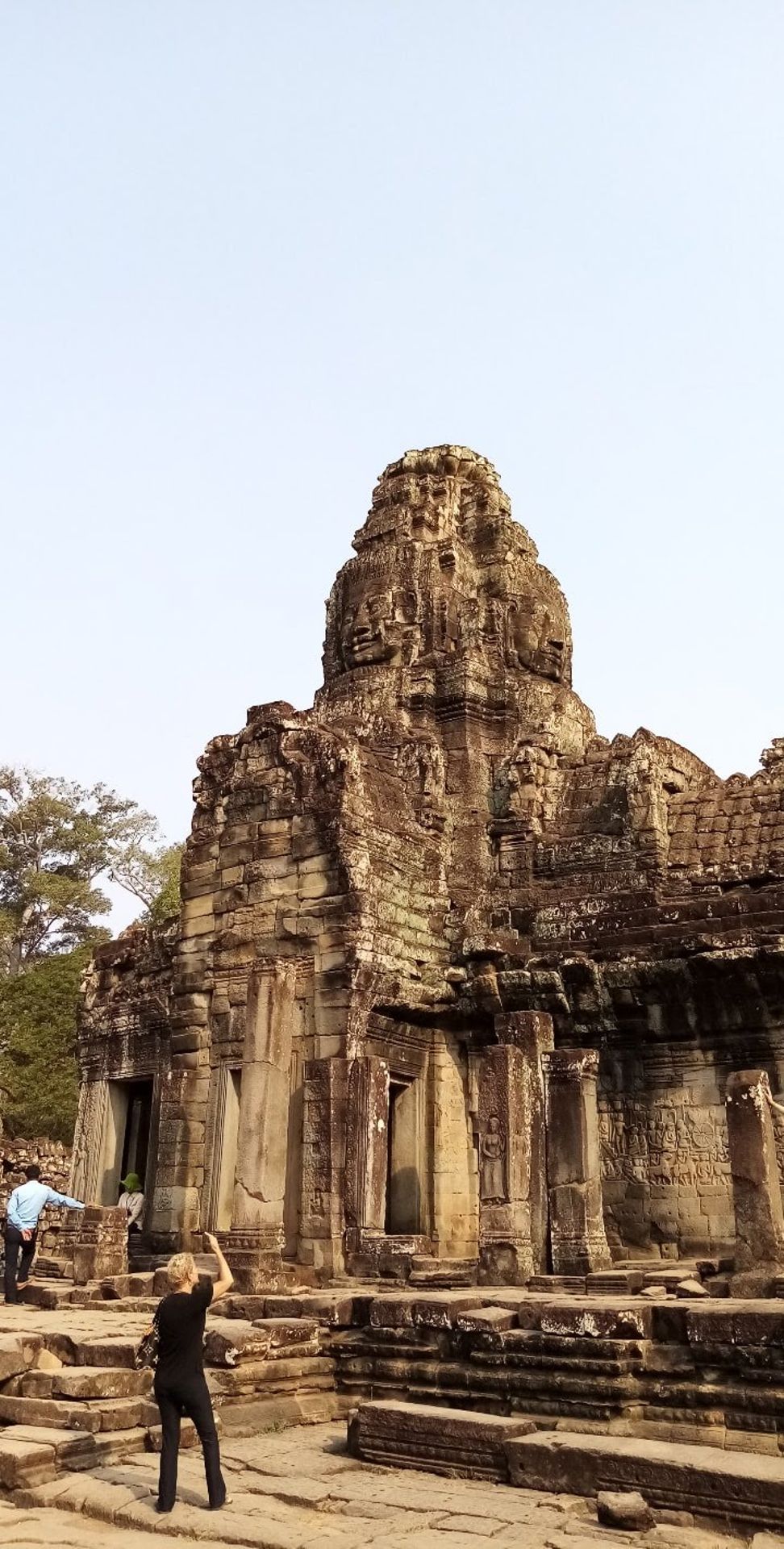

Next, we visited the Ta Prohm temple. This one, especially compared to the ones from the previous day, almost seems a bit intimidating. The passages are relatively narrow, the walls are high, and you have to climb many steps to enter the former rooms. The trees wind themselves around the masonry, but it does not collapse, which stands for stability.
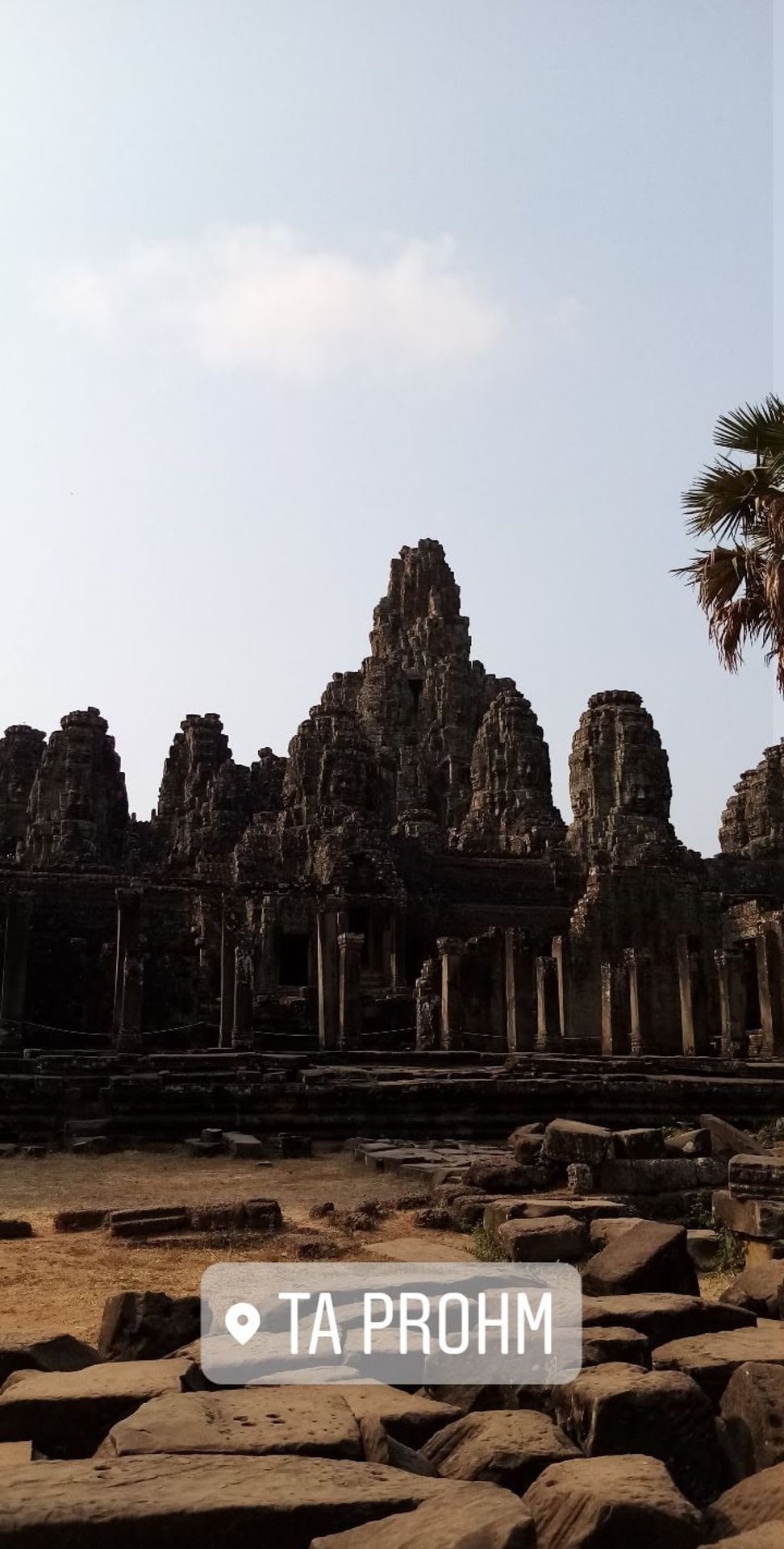

Finally, we visited the Banteay Kdei temple. It was the most impressive temple of the past few days. Historically, it has far less significance and is therefore often skipped by many tourists, but it is clearly different from other temples. The reason for this, however, is not particularly nice: the temple is largely in the forest. Due to its low importance to Angkor, the restoration work here is put on hold, which is why nature is taking over more and more. Trees spread their roots where they can find space, thereby destroying the structure, which is made of delicate sandstone.


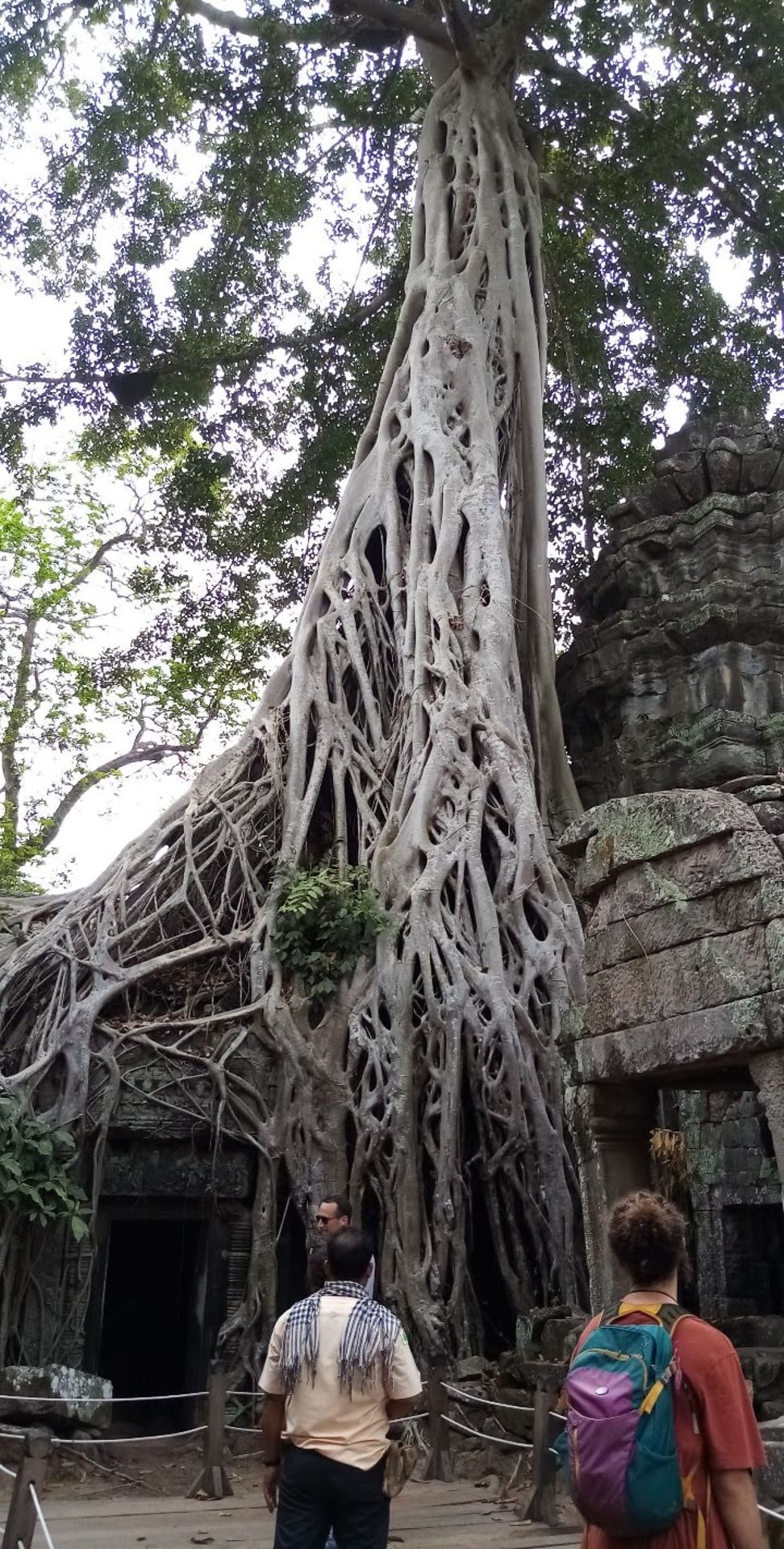
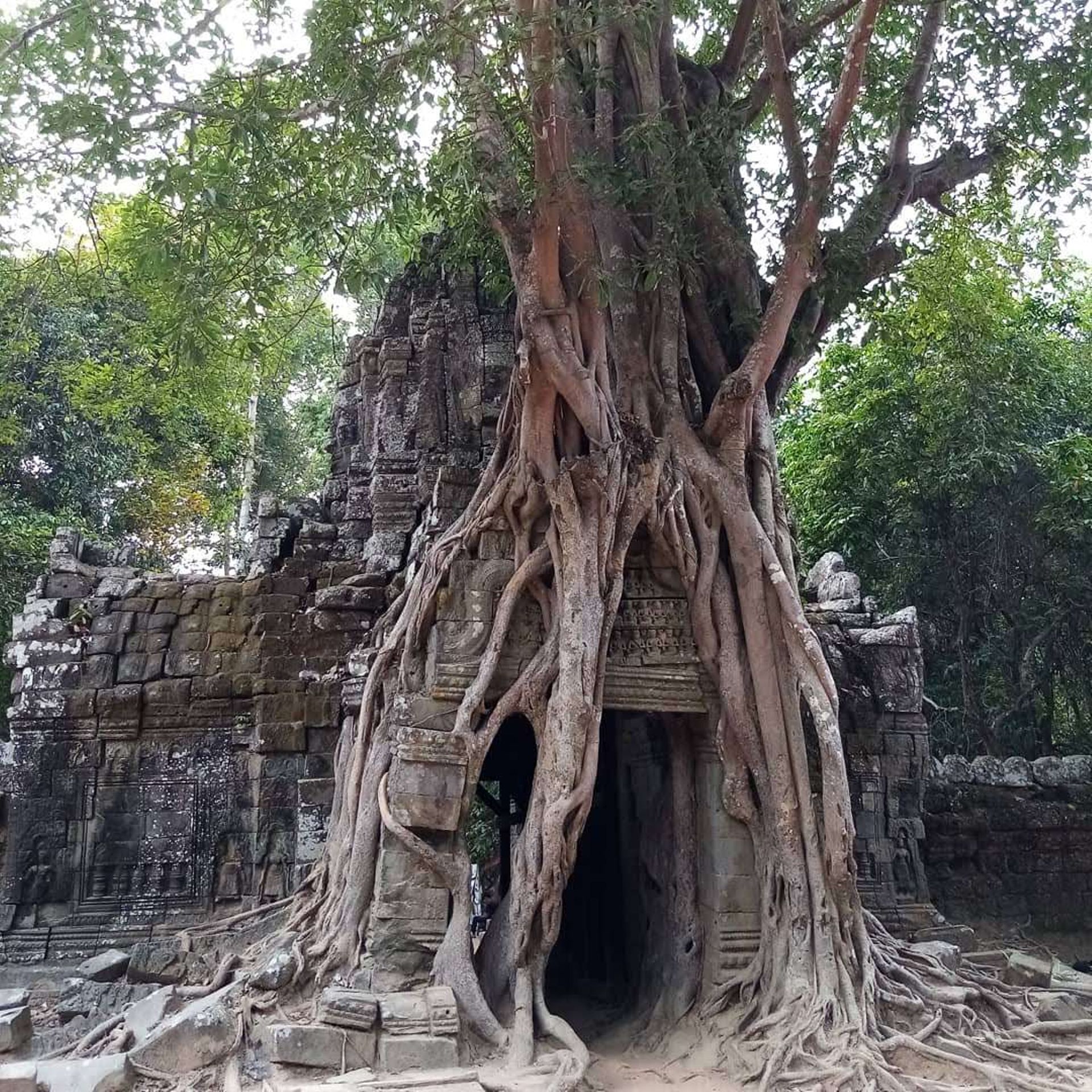
After the four temples, we were back at the hotel around 2 pm, and I took a nap ;) I spent the evening and the next day with friends, mostly in air-conditioned buildings. The tours on the previous days were just right, even though they were only half a day each. Full-day tours are hardly bearable in these weather conditions, and I sometimes had real problems with my circulation. Each of us had a face towel to wipe away the constant sweat, something that is hardly imaginable in Germany, but every tourist did it in Cambodia, as it was necessary.
Jaabi
